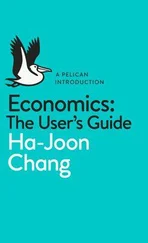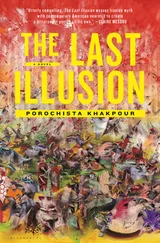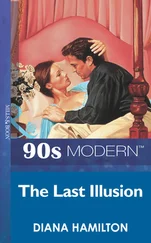Bruce Hood - The Self Illusion
Здесь есть возможность читать онлайн «Bruce Hood - The Self Illusion» весь текст электронной книги совершенно бесплатно (целиком полную версию без сокращений). В некоторых случаях можно слушать аудио, скачать через торрент в формате fb2 и присутствует краткое содержание. ISBN: , Издательство: Constable & Robinson, Жанр: Старинная литература, на английском языке. Описание произведения, (предисловие) а так же отзывы посетителей доступны на портале библиотеки ЛибКат.
- Название:The Self Illusion
- Автор:
- Издательство:Constable & Robinson
- Жанр:
- Год:неизвестен
- ISBN:9781780331379
- Рейтинг книги:5 / 5. Голосов: 1
-
Избранное:Добавить в избранное
- Отзывы:
-
Ваша оценка:
- 100
- 1
- 2
- 3
- 4
- 5
The Self Illusion: краткое содержание, описание и аннотация
Предлагаем к чтению аннотацию, описание, краткое содержание или предисловие (зависит от того, что написал сам автор книги «The Self Illusion»). Если вы не нашли необходимую информацию о книге — напишите в комментариях, мы постараемся отыскать её.
The Self Illusion — читать онлайн бесплатно полную книгу (весь текст) целиком
Ниже представлен текст книги, разбитый по страницам. Система сохранения места последней прочитанной страницы, позволяет с удобством читать онлайн бесплатно книгу «The Self Illusion», без необходимости каждый раз заново искать на чём Вы остановились. Поставьте закладку, и сможете в любой момент перейти на страницу, на которой закончили чтение.
Интервал:
Закладка:
46. M. T. Gailliot, R. F. Baumeister, C. N. DeWall, J. K. Maner, E. A . Plant, D. M. Tice, L. E. Brewer and B. J. Schmeichel, ‘Self-control relies on glucose as a limited energy source: Willpower is more than a metaphor’, Journal of Personality and Social Psychology , 92 (2007), 325–36.
47. I. W. Hung and A. A. Labroo, ‘From firm muscles to firm willpower: Understanding the role of embodied cognition in self-regulation’, Journal of Consumer Research , 37 (2011), 1046–64.
48. D. R. Carney, A. J. C. Cuddy and A. J. Yap, ‘Power posing: Brief nonverbal displays affect neuroendocrine levels and risk tolerance’, Psychological Science , 21 (2010), 1363–8.
49. L. W. Barsalou, ‘Grounded cognition’, Annual Review of Psychology , 59:1 (2008), 617–45.
50. M. Tuk, D. Trampe and L. Warlop, ‘Inhibitory spillover: Increased urination urgency facilitates impulse control in unrelated domains’, Psychological Science , 22 (2011), 627–33.
51. J. Baggini, The Ego Trick (London: Granta, 2011).
52. H. Rachlin, ‘Teleological behaviorism and the problem of self-control’, in R. R. Hassin, K. N. Ochsner and Y. Trope (eds), Self Control in Society, Mind, and Brain (Oxford: Oxford University Press, 2010), 506–521.
53. V. Job, C. S. Dweck and G .M. Walton, ‘Ego depletion—is it all in your head? Implicit theories about willpower affect self-regulation’, Psychological Science , 21 (2010), 1686–93.
54. C. M. Mueller and C. S. Dweck, ‘Intelligence praise can undermine motivation and performance’, Journal of Personality and Social Psychology , 75 (1998), 33–52.
55. K. D. Vohs and J. W. Schooler, ‘The value of believing in free will: Encouraging a belief in determinism increases cheating’, Psychological Science , 19 (2008), 49–54.
56. T. F. Stillman, R. F. Baumeister, K. D. Vohs, N. M. Lambert, F. D. Fincham and L. E. Brewer, ‘Personal philosophy and personnel achievement: Belief in free will predicts better job performance’, Social Psychological and Personality Science , 1 (2010), 43–50.
5 Why Our Choices Are Not Our Own
1. F. Presbrey, ‘1855–1936. The history and development of advertising’, Advertising and Society Review , 1:1 (2000).
2. The phrase ‘subliminal advertising’ was coined in 1957 by the US market researcher James Vicary, who said he could get moviegoers to ‘drink Coca-Cola’ and ‘eat popcorn’ by flashing those messages onscreen for such a short time that viewers were unaware. Vicary later admitted he had fabricated his results.
3. J. N. Axelrod, ‘Advertising measures that predict purchase’, Journal of Advertising Research , 8 (1968), 3–17.
4. Both von Helmholtz and Freud wrote about the unconscious processes that shape our behaviours: H. von Helmholtz, ‘Concerning the perceptions in general’, in Treatise on Physiological Optics, vol. III, trans J. P. C. Southall (New York, NY: Dover, 1925/1962); S. Freud, The Interpretation of Dreams , trans. A. A. Brill (New York, NY: Macmillan, 1913).
5. P. Johansson, L. Hall, S. Sikström and A. Olsson, ‘Failure to detect mismatches between intention and outcome in a simple decision task’, Science , 310:5745 (2005), 116–119.
6. L. Hall, P. Johansson, B. Tärning, S. Sikström and T. Deutgen, ‘Magic at the marketplace: Choice blindness for the taste of jam and the smell of tea’, Cognition , 117 (2010), 54–61.
7. S. Pinker, The Blank Slate: The Modern Denial of Human Nature (New York, NY: Viking, 2002).
8. L. Festinger, A Theory of Cognitive Dissonance (Stanford, CA: Stanford University Press, 1957).
9. V. V. Bapeswara Rao and M. Bhaskara Rao, ‘A three-door game show and some of its variants’, Mathematical Scientist , 17 (1992), 89–94.
10. E. Langer, ‘The illusion of control’, Journal of Personality and Social Psychology , 32 (1975), 311–28.
11. D. Salsburg, The Lady Tasting Tea: How Statistics Revolutionized Science in the Twentieth Century (New York, NY: Holt, 2002).
12. G. Gigerenzer, Reckoning with Risk (Harmondsworth: Penguin, 2003).
13. G. Gigerenzer, ‘Dread risk, September 11, and fatal traffic accidents’, Psychological Science , 15 (2004), 286–7.
14. M. E. P. Seligman and S. F. Maier, ‘Failure to escape traumatic shock’, Journal of Experimental Psychology , 74 (1967), 1–9.
15. M. E. P. Seligman, Helplessness: On Depression, Development, and Death (San Francisco, CA: W. H. Freeman, 1975).
16. G. W. Brown and T. Harris, Social Origins of Depression (New York, NY: Free Press, 1978).
17. S. F. Maier and L. R. Watkins, ‘Stressor controllability, anxiety and serotonin’, Cognitive Therapy Research , 22 (1998), 595–613.
18. T. V. Salomons, T. Johnstone, M.-M. Backonja and R. J. Davidson, ‘Perceived controllability modulates the neural response to pain’, Journal of Neuroscience , 24 (2004), 7199–203.
19. S. Botti and A. L. McGill, ‘The locus of choice: Personal causality and satisfaction with hedonic and utilitarian decisions’, Journal of Consumer Research , 37 (2011), 1065–78.
20. B. Schwartz, The Paradox of Choice: Why More is Less (London: Harper Collins, 2005).
21. D. Ariely, Predictably Irrational (New York, NY: Harper, 2008).
22. D. Kahneman, ‘The riddle of experience vs money’, TED Talk (February 2010), TED website, www.ted.com/talks/daniel_kahneman_the_riddle_of_ experience_vs_memory.html.
23. D. A. Redelmeier, J. Katz and D. Kahneman, ‘Memories of colonoscopy: A randomized trial’, Pain , 104 (2003), 187–94.
24. D. Ariely and G. Loewenstein, ‘The heat of moment: The effect of sexual arousal on sexual decision making’, Journal of Behavioral Decision Making , 19 (2006), 87–98.
25. W. James, Principles of Psychology (New York, NY: Henry Holt, 1890).
26. P. Kanngiesser, N. L. Gjersoe and B. M. Hood, ‘The effect of creative labor on property-ownership transfer by preschool children and adults’, Psychological Science , 21 (2010), 1236–41.
27. B. M. Hood and P. Bloom, ‘Children prefer certain individuals to perfect duplicates’, Cognition , 106 (2008), 455–62.
28. B. M. Hood, K. Donnelly, U. Leonards and P. Bloom, ‘Implicit voodoo: Electrodermal activity reveals a susceptibility to sympathetic magic’, Journal of Culture and Cognition , 10 (2010), 391–9.
29. D. J. Turk, K. van Bussel, G. D. Waiter, C. N. Macrae, ‘Mine and me: Exploring the neural basis of object ownership’, Journal of Cognitive Neuroscience 23 (2011), 3657–3668.
30. S. J. Cunningham, D. J. Turk and C. N. Macrae, ‘Yours or mine? Ownership and memory’, Consciousness and Cognition , 17 (2008), 312–18.
31. ‘Settlement reached over Auschwitz suitcase’, Auschwitz-Birkenau Memorial and Museum website (June 2009), http://en.auschwitz.org.pl/m/index.php?option=com_contentandtask=viewandid=630andItemid=8.
32. M. Carroll, ‘“Junk” collections among mentally retarded patients’, American Journal of Mental Deficiency , 73 (1968), 308–314.
33. P. Sherwell, ‘Hoarder killed by collapsing clutter’, Daily Telegraph (22 January 2006).
34. R. W. Belk, ‘Possession and the extended self’, Journal of Consumer Research , 15 (1988), 139–68.
35. R. Thaler, ‘Toward a positive theory of consumer choice’, Journal of Economic Behavior and Organization , 1 (1980), 39–60.
36. D. Kahneman, J. L. Knetsch, R. H. Thaler, ‘Anomalies: The endowment effect, loss aversion and status quo bias’, Journal of Economic Perspectives , 5 (1991), 193–206.
Читать дальшеИнтервал:
Закладка:
Похожие книги на «The Self Illusion»
Представляем Вашему вниманию похожие книги на «The Self Illusion» списком для выбора. Мы отобрали схожую по названию и смыслу литературу в надежде предоставить читателям больше вариантов отыскать новые, интересные, ещё непрочитанные произведения.
Обсуждение, отзывы о книге «The Self Illusion» и просто собственные мнения читателей. Оставьте ваши комментарии, напишите, что Вы думаете о произведении, его смысле или главных героях. Укажите что конкретно понравилось, а что нет, и почему Вы так считаете.












